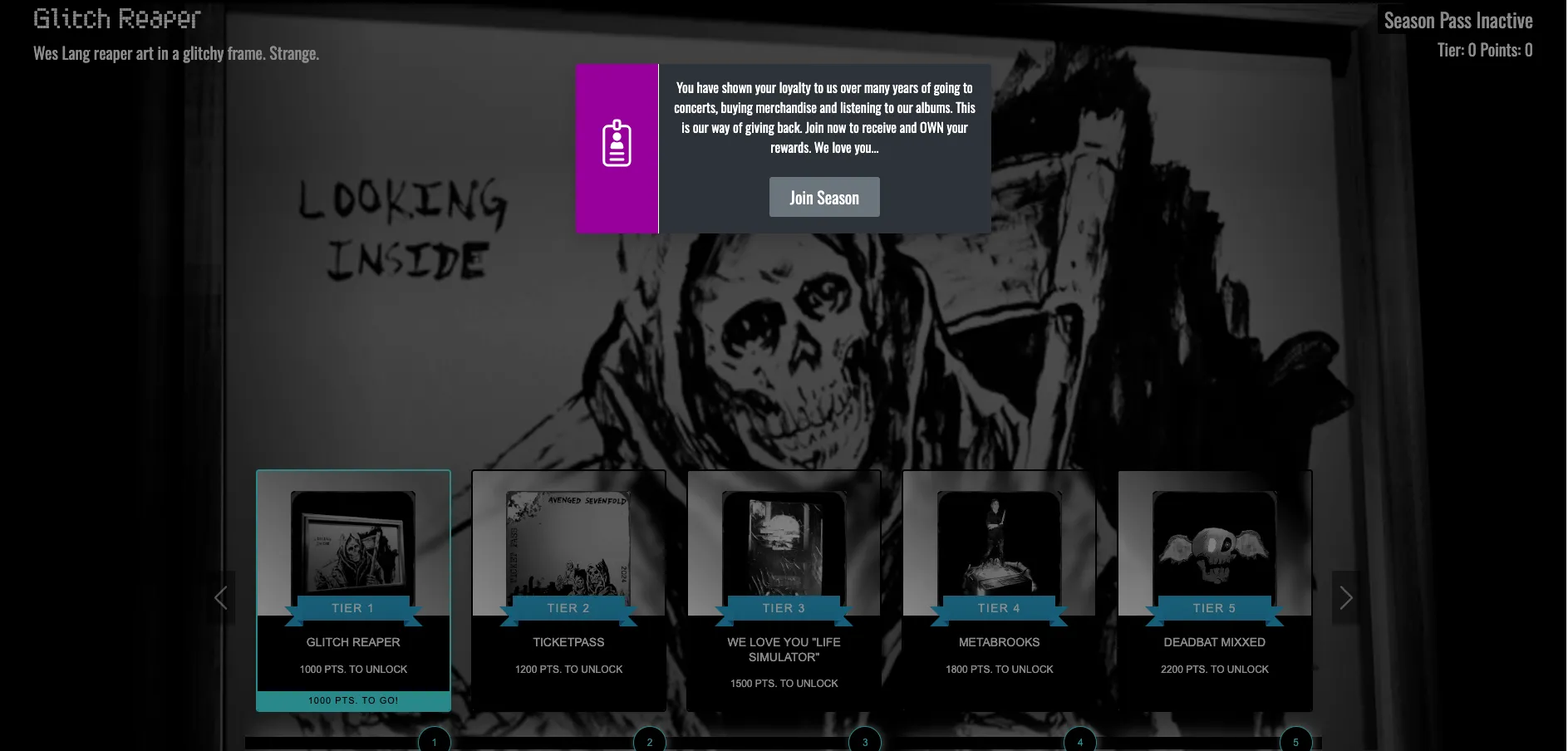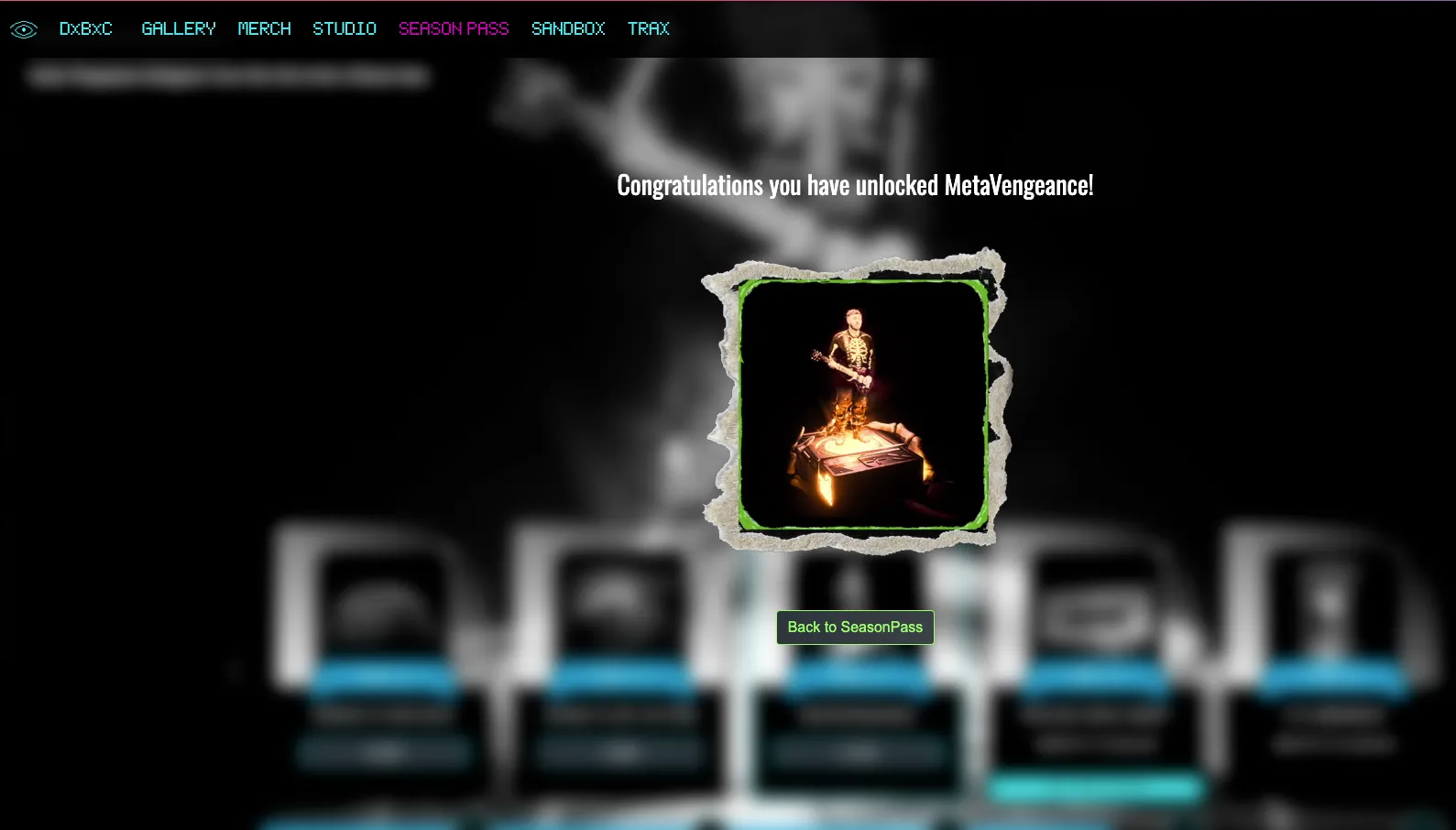Heavy metal band Avenged Sevenfold has been a Web3 enthusiast for a long time. They are launching their own line of Deathbats NFTs and expanding token-gated ticket sales with Ticketmaster.
Now, in what the band is calling the “culmination point” of their Web3 efforts, the band has launched Season Pass, a decentralized fan rewards platform that allows Avenged Sevenfold followers to collect rewards for participating in activities related to the band. It resembles the battle pass in the popular video game Fortnite, but focused on the band.
Frontman Matt Sanders (aka M. Shadows) told us Declutter that by slowly introducing fans to the benefits of Web3, “they become evangelists for it because they then go to other concerts or other communities of artists that they enjoy.”
“They can compare: ‘Which fandom do I like to participate in?’ if you show them all the positive aspects,” he said, adding that they can weigh that against Web3 challenges such as crypto wallet security. “If you take all the good and the bad and kind of weigh them against each other, you’re just playing the long game and leaving it up to them to explain it to other people,” he added.

Season pass. Image: Avenged Sevenfold
Built on the Ethereum scaling network Polygon, the Season Pass rewards fans for redeeming digital tickets for concert tickets, streaming the band’s music and purchasing NFC chip-enabled merchandise. Those points unlock tiered rewards, which can range from digital collectibles to merchandise discounts and previously unreleased demo tracks. For the band’s most devoted fans, the biggest reward comes in the form of free concert tickets and meet-and-greets.

Season pass. Image: Avenged Sevenfold
Because they are distributed on a decentralized platform, fans have true ownership of these rewards and can trade them on third-party marketplaces. Avenged Sevenfold had the advantage of working with an already established fan base, Sanders said.
“We had 20 years of goodwill with them, and they knew we weren’t doing something funky to ruin our reputation with them,” he said, adding that the band “took that goodwill we had with them and put them in brought something that we think is even cooler.”
Many bands have been “sitting on the sidelines” to see how Avenged Sevenfold’s Web3 gamble turns out, Sanders said. Two years after the launch of the Deathbats Club NFT collection, and as the band plays the second leg of their LIBAD tour, the benefits are starting to become apparent, in what he calls the “true come to Jesus moment.”
Now, he said, “the fans are going to speak and artists are going to have to listen.”
Sanders expects Web3 adoption in the music industry to be driven by established bands like Avenged Sevenfold, in parallel with emerging artists whose fans grew up with crypto. “The fact that we’re in our 40s and we’re trying to do this almost breaks the Matrix,” he said, adding: “The way this would normally have to happen is that these young kids coming up have a completely different create music industry. the music industry we are trying to create 25 years into our career.”
While Avenged Sevenfold has had to invest a lot of time and effort into educating their fanbase about Web3, he said, the next generation of musicians and fans will have grown up with the technology. “It’s going to be harder for us to get our audience involved in this than it is for the kid who’s going to come up and build their audience through this, in a way that’s very Web3 native,” he said.
Sanders said the negative press surrounding NFTs and Web3 has made some artists cautious about adopting the technology for the time being. “You just have to use it and push through it,” he said. “If that’s not the case, then you’re a slave to your fans, and I don’t think that’s a healthy relationship.”
He added that Avenged Sevenfold is “kind of an anomaly,” as at this stage in their career the band is “willing to shake the tree and ruffle the feathers of our fanbase.”
“We could literally ride off into the sunset, keep writing the same kind of records and just play arenas for the rest of our days and call it a day,” Sanders said. Instead, he added, the band wants to prove that Web3 is actually useful for musicians and fans.
“We want to lead by example,” he said, “that you can create a better internet and you can create a better future for artists.”
Edited by Andrew Hayward













